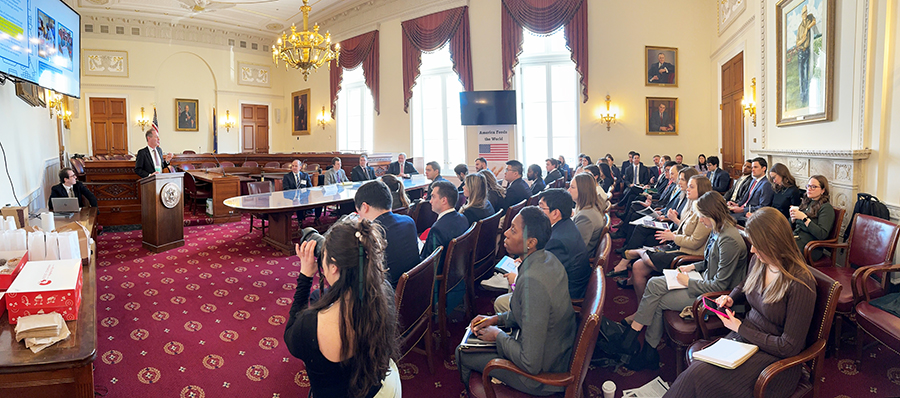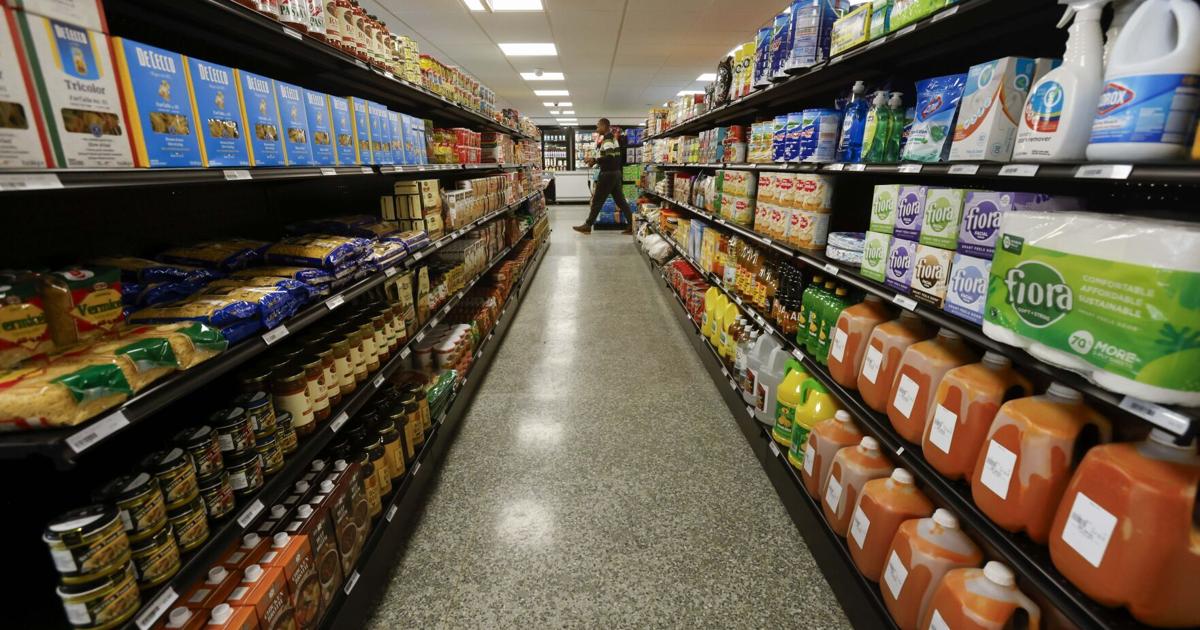Hartford is on the verge of settling a pricey, decadelong legal fight that pitted a private developer’s plan for a fast food restaurant against the city’s and West End neighborhood’s ambition to create a walkable, Farmington Avenue streetscape.
After years of litigating a half-dozen state and federal suits, Hartford has agreed tentatively to pay developer Eliot B. Gersten $1.8 million for the empty, one-third acre lot at Farmington and Girard Avenues where Gersten and partner Phil Philip Schonberger wanted to build a McDonald’s restaurant with a drive-through window. Schonberg died in 2015 before the half-way point in the fast food fight.
Gersten will drop his plan for a McDonald’s, withdraw his suits, hand the land to the city and take the money as compensation for lost income and legal fees. The city is expected to lay out a package of government financial incentives in an effort to find a developer willing to put up a mixed-use retail and apartment building on the site.

(Brad Horrigan/The Hartford Courant)
“This settlement resolves a dispute that has been going on for nearly a decade and ensures that this parcel on Farmington Avenue can be developed in a way that the community supports rather than a use that the community was overwhelmingly opposed to,” Mayor Luke Bronin said.
Hartford’s Court of Common Council must approve the settlement and purchase, and Bronin is expected to present it to the council at a meeting before the end of the month.
[ The ‘Mo-Pho’ bus will be heading to Hartford: Owners of the new Connecticut entertainment venue on wheels say it’s a ‘vibrant, artistic’ city ]
At the equivalent of $5.4 million for an undeveloped acre, the city is paying a high price for the property, people familiar with the market said. But Gersten has had the better record in court — a year ago, the state Supreme Court ruled the city was using its zoning authority improperly to block the McDonald’s — and should he win going forward, the city could be on the hook for $2 million or more.
Gersten declined to discuss the settlement.
The politically influential occupants of the well-kept homes north of Farmington Avenue have been adamant in their opposition to a fast food drive-through, which they claim will scatter litter, increase vehicle traffic, hurt efforts to make the important east-west commercial corridor more pedestrian friendly and lower property values. For decades, the West End has united behind a succession of development plans to turn the avenue into a leafy place of apartments, small businesses, restaurants and lulled traffic.
“Like all of our major commercial corridors that run through our neighborhoods, we want Farmington Avenue to be a walkable, connected, vibrant corridor with a good mix of residential and retail,” Bronin said.
Of the future of the once-proposed McDonald’s site, Bronin said, “We will look to partner with private developers, and we’ll have to see what the market can support. But I think that is a natural site for a mixed use development with both residential and retail.”
Even with McDonald’s out of the picture, there are obstacles to the transformation of Farmington Avenue. Next door to where Gersten wanted to put a McDonald’s is a Burger King — with a drive-through window. Across the street is a Kentucky Fried Chicken Restaurant without one. There are also small businesses more consistent with the city’s vision: specialty Mexican and Korean restaurants, a combination coffee house and bar, and an Irish pub on or near the busy stretch of the avenue near its intersection with Girard.

Five Things You Need To Know
Daily
We’re providing the latest coronavirus coverage in Connecticut each weekday morning.
A food truck park with a pergola, a stage and seating for dozens of people, is being built on a lot at 510 Farmington Ave. by Quan and Rebeca Quach, who live in the neighborhood. Quan Quach has said up to four trucks at a time will be scheduled in a rotation similar to the setup at GastroPark, the food truck park in West Hartford that opened in 2020.
Gersten and Schonberger obtained a commitment from McDonald’s and wanted to build their restaurant on the empty site of what for years had been a Shell gas station. The McDonald’s commitment was contingent on a profit generating drive-through window. Gersten claimed in four separate suits in state court that the city was illegally blocking his plans by rewriting zoning laws to kill his successive proposals.
The state Supreme Court ruled for Gersten a year ago, telling the parties to restart the process using 2012 zoning regulations that permitted a fast food drive-through. The Supreme Court decision strengthened a federal suit in which Gersten argued the city was effectively taking his property by refusing to allow him to develop it.
In a measure of its objection to drive-through windows, when Gersten refiled after the Supreme Court decision, the city again rejected the proposal.
Amid the years of litigation and delay, McDonald’s gave up on Farmington Avenue and withdrew from the project — a decision that cost the developers as much as $3 million, according to court records.
[ Developer seeks to build three-story ‘boutique’ hotel in heart of Southington’s Plantsville section ]
During Bronin’s administration, Hartford moved away from traditional zoning and adopted something called “form-based code,” a means of regulating land development to achieve a specific urban design. Form-based development codes encourage designs that organize development based on the kind of community the city wants to create rather than by land use regulations.
There is no schedule for development of the former gas station site, which has been vacant for more than a decade.

:quality(70)/cloudfront-us-east-1.images.arcpublishing.com/tronc/PWQVG54EWZF7HFTENOXP5TXI5I.jpg)









